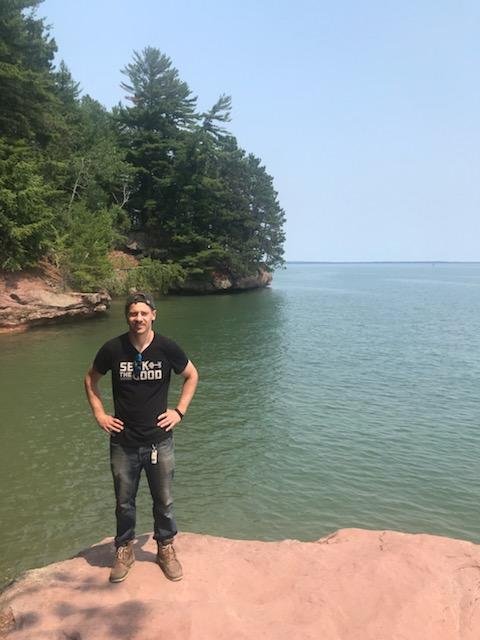Meet EPA Researcher Sebastian Paczuski

Sebastian Paczuski supports social science aspects of EPA’s research. Sebastian analyzes community case studies, works with local natural resource managers on decision support processes, examines Health Impact Assessments completed by EPA, studies the beneficial reuse of dredged materials, and supports the Pickle Pond restoration project.
Tell us about your background.
I have a bachelor’s in international studies specializing in the global commons and environment from University of Wisconsin-Madison and a Master of Sustainable Peacebuilding degree from University of Wisconsin-Milwaukee. My experience in fieldwork includes social mobilization and organization network mapping, and social impact evaluation.
When did you first know you wanted to be a scientist?
I’ve always been a curious person with a desire to do meaningful work and to better understand and “improve” the human relationship with our environment. These desires fit well with the field of science.
What do you like most about your research?
Working with so many intelligent, innovative, and environmentally minded people is inspirational and never boring.
How does your science matter?
My work outlines the human benefits of a healthier environment and how the ways in which we can improve our interactions with the natural environment can improve human wellbeing and environmental conservation and restoration.
If you weren’t a scientist, what would you be doing?
I would be interested in working in the business or governance world on sustainability issues. Otherwise, I’d like to think I could own and operate a successful dumpling and soup shop. Yum.
What advice would you give a student interested in a career in science?
Stay curious and be truly open to learning. Find the most compelling challenges you think humans or the natural world face, and then build your knowledge and expertise accordingly. There is no shortage of challenges and problems; and helping work on solutions opens doors for professional fulfillment AND success.
Editor's Note: The opinions expressed herein are those of the researcher alone. EPA does not endorse the opinions or positions expressed.
